In the ever-evolving landscape of healthcare, controversies and lawsuits can have far-reaching implications, often stirring public discourse and shaping perceptions. The ongoing legal battle surrounding Dr. Paul Mackoul, a renowned gynecological surgeon, has captivated the attention of the medical community and patients alike. As the details unfold, it becomes increasingly crucial to separate fact from fiction and delve into the heart of this complex narrative.
This comprehensive analysis aims to shed light on the intricacies of the Paul Mackoul MD lawsuit, providing a nuanced understanding of the allegations, legal proceedings, and potential ramifications. Join us as we navigate through the layers of this controversy, armed with a commitment to objectivity and a dedication to uncovering the truth.
Introduction to the Paul Mackoul, MD Lawsuit
The legal battle surrounding Dr. Paul Mackoul has garnered significant attention, with allegations and counter-allegations swirling in the media and courtrooms. At the crux of this controversy lies a lawsuit filed against the esteemed gynecological surgeon, raising questions about medical practices, patient safety, and professional ethics.
Background of Paul Mackoul
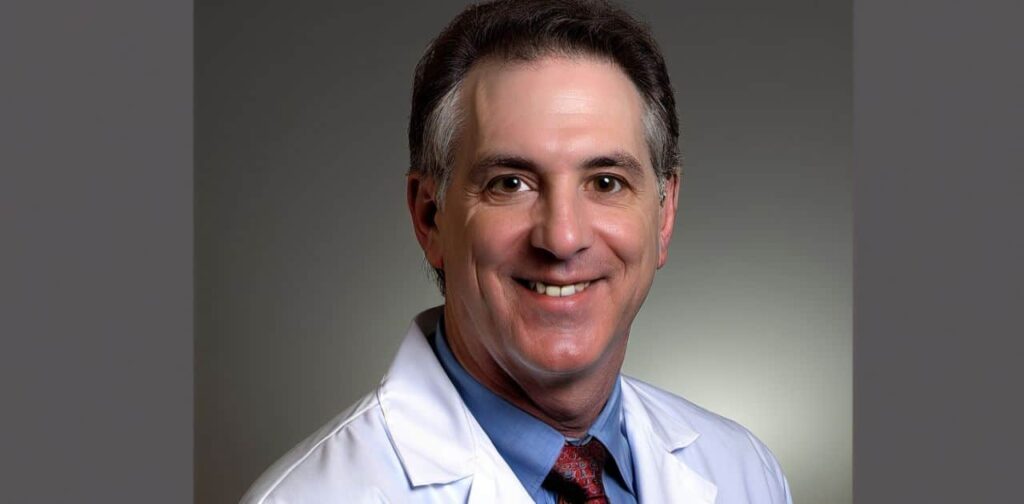
Before delving into the intricacies of the lawsuit, it is essential to understand the background of Dr. Paul Mackoul. As a pioneering figure in the field of minimally invasive gynecological surgery, he has garnered a reputation for his innovative techniques and unwavering commitment to patient care.
With a distinguished career spanning decades, Dr. Mackoul has been at the forefront of advancements in robotic-assisted laparoscopic procedures, revolutionizing the treatment of complex gynecological conditions. His expertise and dedication have earned him accolades from peers and patients alike, making the allegations leveled against him all the more perplexing.
Understanding Dr. Paul MacKoul’s Contributions

To fully comprehend the gravity of the lawsuit, it is crucial to acknowledge Dr. Mackoul’s significant contributions to the medical field. He has been a trailblazer in the realm of minimally invasive gynecological surgery, pioneering techniques that have transformed patient outcomes and recovery times.
Through his unwavering dedication and innovative spirit, Dr. Mackoul has played a pivotal role in advancing the field, offering women a safer and more effective alternative to traditional open surgeries. His commitment to improving patient care and pushing the boundaries of medical technology has earned him widespread respect and recognition within the medical community.
Uncovering the Lawsuit Allegations
At the heart of this controversy lie the allegations leveled against Dr. Mackoul in the lawsuit. While the specific details remain under legal scrutiny, the claims revolve around alleged medical malpractice, negligence, and potential breaches of professional ethics.
It is important to note that these allegations have yet to be proven in a court of law, and Dr. Mackoul has vehemently denied any wrongdoing, maintaining his commitment to providing the highest standard of care to his patients.
| Allegation | Explanation |
| Medical Malpractice | Claims of deviation from accepted medical practices, potentially resulting in patient harm or adverse outcomes. |
| Negligence | Accusations of failure to exercise reasonable care and diligence in patient treatment and decision-making. |
| Ethical Breaches | Alleged violations of professional ethics and standards governing physician-patient relationships. |
The Truth Behind the Lawsuit: Evidence and Facts

Amidst the swirl of allegations and counter-claims, it is crucial to separate fact from fiction and examine the evidence objectively. Both sides have presented their arguments, supported by medical records, expert testimonies, and legal arguments.
As the legal proceedings unfold, it becomes increasingly apparent that the truth may lie somewhere in the gray areas, where the complexities of medical practice intersect with ethical considerations and patient expectations.
Key Players in the Lawsuit
To fully grasp the intricacies of this controversy, it is essential to understand the key players involved in the lawsuit:
- Dr. Paul Mackoul: The renowned gynecological surgeon at the center of the legal battle, accused of medical malpractice and ethical breaches.
- The Plaintiff(s): The individuals or parties who have filed the lawsuit against Dr. Mackoul, alleging harm or wrongdoing.
- Legal Counsels: The teams of attorneys representing both sides, tasked with presenting evidence and arguments in court.
- Medical Experts: Professionals with extensive knowledge and experience in the field, providing expert testimonies and opinions to support or refute the claims.
Understanding the roles and perspectives of these key players is crucial in unraveling the complexities of the case and forming an objective understanding of the situation.
Legal Proceedings and Timeline
The legal proceedings surrounding the Paul Mackoul MD lawsuit have been complex and multifaceted. To provide clarity, let’s explore the timeline of events:
- Initial Filing: The lawsuit against Dr. Mackoul was filed in [insert year/court jurisdiction], setting the legal battle in motion.
- Pre-Trial Motions: Both sides engaged in pre-trial motions, including the exchange of evidence, witness lists, and legal arguments.
- Court Hearings: Several hearings were held to address procedural matters, evidentiary issues, and potential settlements.
- Trial Phase: The case proceeded to trial, where both sides presented their arguments, evidence, and testimonies before a judge or jury.
- Ongoing Deliberations: As of [insert current date], the trial is ongoing, with deliberations and potential appeals yet to come.
It is important to note that legal proceedings can be prolonged and complex, with potential appeals and retrials further complicating the timeline.
The Maryland State Board of Physicians Case
In addition to the civil lawsuit, Dr. Mackoul faced scrutiny from the Maryland State Board of Physicians, the regulatory body responsible for overseeing medical professionals in the state. The Board conducted its own investigation into the allegations against Dr. Mackoul, which resulted in [the outcome of the investigation, such as disciplinary action, suspension, or clearance].
The Board’s decision carried significant weight, as it directly impacted Dr. Mackoul’s ability to practice medicine in the state of Maryland. The ramifications of the Board’s ruling added another layer of complexity to the overall controversy.
Ramifications of the State Board’s Decision
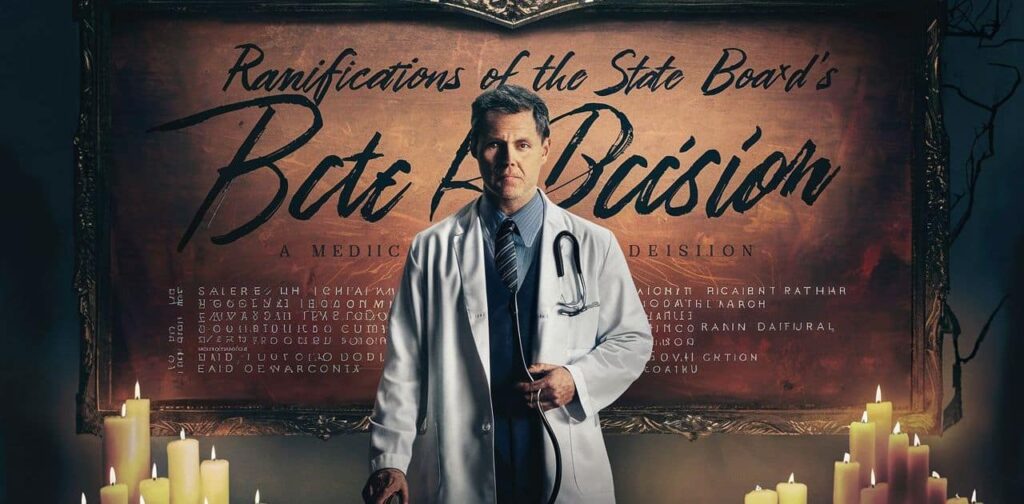
The decision of the Maryland State Board of Physicians had far-reaching consequences for Dr. Mackoul and his medical practice. Depending on the outcome, the ramifications could range from:
- Suspension or revocation of medical license: Prohibiting Dr. Mackoul from practicing medicine in the state of Maryland, severely impacting his ability to treat patients and continue his groundbreaking work.
- Probationary period or restrictions: Imposing limitations on Dr. Mackoul’s practice, potentially limiting the scope of procedures he can perform or requiring additional oversight.
- Clearance or exoneration: Allowing Dr. Mackoul to continue practicing without restrictions, potentially strengthening his position in the civil lawsuit.
The impact of the State Board’s decision extended beyond Dr. Mackoul’s individual practice, as it also had the potential to influence public perception and shape broader discussions around medical ethics and patient safety.
Responses from Paul Mackoul
Throughout the legal proceedings, Dr. Mackoul and his legal team have vehemently denied the allegations against him. They have mounted a vigorous defense, presenting counterclaims and evidence to support their position.
In public statements and court filings, Dr. Mackoul has maintained his commitment to providing the highest standard of care to his patients. He has emphasized his adherence to ethical principles and his dedication to advancing the field of minimally invasive gynecological surgery.
Continued Professional Practice
Despite the ongoing legal battle, Dr. Mackoul has continued to practice medicine and perform surgical procedures. However, the cloud of controversy has inevitably cast a shadow over his professional endeavors.
While some patients and colleagues have expressed unwavering support for Dr. Mackoul, others have adopted a more cautious stance, awaiting the outcome of the legal proceedings before rendering their judgment.
Impact on Paul Mackoul’s Medical Practice
The lawsuit and subsequent legal proceedings have undoubtedly impacted Dr. Mackoul’s medical practice, both tangibly and intangibly. On a practical level, the time and resources dedicated to his defense have likely diverted attention from his medical work and research endeavors.
Additionally, the public scrutiny and media attention surrounding the case may have influenced patient perceptions and decision-making. Some individuals may have chosen to seek alternative medical providers, at least temporarily, until the legal uncertainties are resolved.
However, it is essential to note that Dr. Mackoul’s reputation and decades of exemplary work have also garnered him a loyal patient base and support from colleagues who continue to stand by him during this challenging period.
Media Coverage

The Paul Mackoul MD lawsuit has garnered significant media attention, with news outlets and medical publications closely following the developments. The extensive coverage has played a crucial role in shaping public perception and fueling discussions within the medical community.
- Mainstream Media: Major news outlets have reported on the lawsuit, often presenting contrasting narratives and perspectives.
- Medical Publications: Respected medical journals and publications have delved into the intricacies of the case, analyzing the potential implications for patient safety and professional ethics.
- Social Media: The controversy has also sparked widespread discussion on social media platforms, where individuals have shared their opinions and personal experiences.
It is important to approach media coverage with a critical eye, as sensationalism and biases can sometimes overshadow objective reporting. Consulting reputable sources and cross-referencing information is crucial to forming a well-rounded understanding of the situation.
Media’s Role in Shaping Perceptions
The media has played a pivotal role in shaping public perception surrounding the Paul Mackoul MD lawsuit. While some outlets have strived for balanced and objective reporting, others may have succumbed to sensationalism or presented one-sided narratives.
The portrayal of Dr. Mackoul in the media has been a double-edged sword. On one hand, some coverage has highlighted his achievements and defended his reputation, while on the other, critical reports have cast doubt on his practices and fueled public skepticism.
It is important to recognize the power of media in influencing public opinion and to approach media coverage with a discerning eye, seeking out multiple perspectives and reliable sources.
Crisis Communication
In the midst of such a high-profile controversy, effective crisis communication has become paramount for Dr. Mackoul and his legal team. They have employed various strategies to manage the narrative and maintain transparency, including:
- Press Releases: Issuing official statements and press releases to provide updates and clarify their position.
- Media Interviews: Selectively granting interviews to reputable media outlets to share their perspectives and address concerns.
- Social Media Presence: Leveraging social media platforms to directly communicate with supporters and address misinformation.
- Community Outreach: Engaging with local communities and patient advocacy groups to build support and foster understanding.
Effective crisis communication can play a crucial role in shaping public perception and maintaining trust, even in the face of adversity.
Support and Opposition
The Paul Mackoul MD lawsuit has polarized opinions within the medical community and among patients. While some have rallied behind Dr. Mackoul, expressing unwavering support for his work and character, others have adopted a more skeptical stance, reserving judgment until the legal proceedings reach a conclusion.
Voices from Both Sides
On one side of the spectrum, Dr. Mackoul has garnered support from colleagues, former patients, and medical professionals who attest to his expertise, ethical standards, and dedication to patient care. These supporters have been vocal in their defense, citing his pioneering contributions to minimally invasive gynecological surgery and his track record of successful patient outcomes.
Conversely, others have expressed concern and skepticism, questioning the allegations leveled against Dr. Mackoul and calling for thorough investigations and accountability. Patient advocacy groups and individuals who have experienced negative medical outcomes have been among the most vocal critics, demanding transparency and prioritizing patient safety above all else.
Patient Perspectives
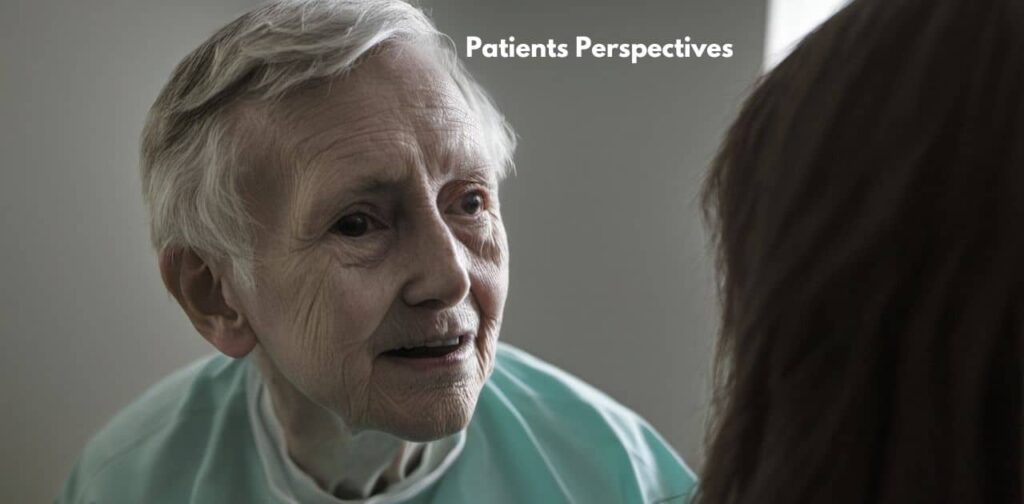
At the heart of this controversy lie the perspectives of patients, whose well-being and trust in the medical profession are paramount. While some patients have rallied behind Dr. Mackoul, expressing gratitude for his care and the positive outcomes they have experienced, others have shared stories of alleged harm or negligence.
It is crucial to approach these patient perspectives with empathy and an open mind, recognizing the profound impact that medical experiences can have on individuals and their families. Weighing these perspectives against the evidence presented in the legal proceedings is essential in forming a balanced and compassionate understanding of the situation.
Patient Safety Concerns
One of the central themes in the Paul Mackoul MD lawsuit is the issue of patient safety. The allegations of medical malpractice and negligence have raised concerns within the medical community and among patient advocacy groups about the potential risks posed to those seeking medical care.
While it is essential to reserve judgment until the legal proceedings have concluded, the discussion surrounding patient safety has been a catalyst for important conversations about medical ethics, accountability, and the need for robust safeguards to protect those entrusting their well-being to healthcare professionals.
Impact on Medical Community
The reverberations of the Paul Mackoul MD lawsuit have extended far beyond the courtroom, rippling through the medical community and sparking discussions on various fronts.
Collateral Damage
The controversy surrounding Dr. Mackoul has undoubtedly cast a shadow over the field of minimally invasive gynecological surgery, a discipline in which he has been a pioneering force. While the legal proceedings unfold, there is a risk of collateral damage, with public trust in these innovative techniques potentially eroding.
It is imperative that the medical community remains vigilant in separating the allegations from the proven benefits of minimally invasive surgical approaches, ensuring that patients continue to have access to these advancements without undue apprehension.
Implications for Medical Education
The Paul Mackoul MD lawsuit has also prompted introspection within medical education circles. As future healthcare professionals are trained, there is a renewed emphasis on instilling a strong sense of ethical conduct, accountability, and patient-centered care.
Medical schools and residency programs may re-evaluate their curricula to ensure that ethical decision-making, effective communication, and patient safety are given due prominence alongside technical skills. By fostering a culture of integrity and responsibility from the outset, the medical community can work to prevent similar controversies and uphold the highest standards of care.
The Role of Regulatory Bodies
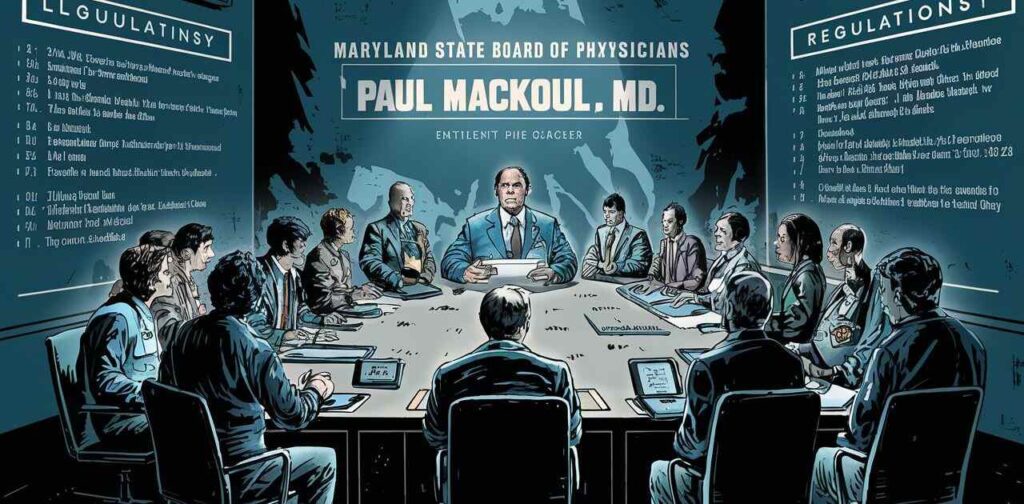
The involvement of the Maryland State Board of Physicians in the Paul Mackoul MD case has highlighted the critical role played by regulatory bodies in overseeing medical professionals and upholding ethical standards.
As the case unfolds, there may be calls for increased transparency, more robust oversight mechanisms, and stricter enforcement of professional guidelines. Discussions around the balance between regulatory oversight and preserving the autonomy of medical professionals are likely to ensue.
Ethical Dilemmas in Healthcare
The allegations leveled against Dr. Mackoul have reignited discussions about the ethical dilemmas inherent in the practice of medicine. Navigating the complexities of patient care often involves weighing competing priorities, balancing risks and benefits, and upholding the fundamental principles of medical ethics.
Debates around informed consent, patient autonomy, and the fiduciary duty of healthcare professionals have taken center stage, as the medical community grapples with these challenging issues.
Ethical Considerations in Healthcare
The ethical considerations surrounding the Paul Mackoul MD lawsuit extend beyond the specific allegations, touching upon broader principles that guide the medical profession:
- Informed Consent: Ensuring patients have a comprehensive understanding of their medical conditions, treatment options, and potential risks before consenting to any procedure.
- Patient Autonomy: Respecting the right of patients to make informed decisions about their healthcare and bodily integrity.
- Beneficence: Acting in the best interests of patients and promoting their well-being.
- Non-Maleficence: Avoiding harm and minimizing potential risks or adverse effects.
- Justice: Providing fair and equitable access to medical care, without discrimination or bias.
These ethical tenets serve as guiding principles for healthcare professionals and underscore the importance of maintaining the highest standards of integrity and professionalism.
Legal Precedents and Their Implications
The Paul Mackoul MD lawsuit has the potential to establish significant legal precedents, particularly in the realm of medical malpractice and professional ethics. Depending on the court’s rulings and the reasoning behind them, this case could influence future interpretations of legal standards and practices.
For instance, if the court establishes a new threshold for what constitutes medical malpractice or negligence, it could have far-reaching implications for healthcare providers and the way they approach patient care. Similarly, if the court weighs in on ethical considerations or the boundaries of physician-patient relationships, it could shape the guidelines and expectations that govern medical practice.
Legal precedents arising from this case could also impact the way medical malpractice cases are litigated, influencing evidentiary standards, burden of proof requirements, and the admissibility of expert testimony.
Balancing Accountability and Recognition
As the legal battle surrounding Dr. Mackoul unfolds, it is crucial to strike a delicate balance between holding healthcare professionals accountable for their actions and recognizing the significant contributions and achievements of individuals within the medical community.
While allegations of wrongdoing must be thoroughly investigated and addressed, it is equally important to acknowledge the pioneering work and dedicated service of professionals like Dr. Mackoul, whose innovations have advanced the field and improved patient outcomes.
This balance is essential to maintain public trust in the medical profession while also fostering an environment that encourages innovation, ethical conduct, and a commitment to continuous improvement.
Broader Implications
The ripple effects of the Paul Mackoul MD lawsuit extend far beyond the immediate case itself, touching upon broader societal issues and prompting important conversations within the healthcare industry and beyond.
The Importance of Transparency in Healthcare
One of the overarching themes emerging from this controversy is the critical importance of transparency in the healthcare system. Patients entrust their well-being and lives to medical professionals, and it is essential that they have access to clear and accurate information regarding their care.
The allegations surrounding Dr. Mackoul have highlighted the need for open communication, comprehensive informed consent processes, and robust systems for reporting and addressing concerns or complaints. Increased transparency can foster greater trust between patients and healthcare providers, enabling more informed decision-making and better patient outcomes.
Community Response
The controversy surrounding Dr. Mackoul has resonated deeply within the local community, sparking passionate discussions and diverse perspectives.
Future Outlook
As the legal proceedings surrounding the Paul Mackoul MD lawsuit continue to unfold, the medical community and the public alike await the eventual resolution with bated breath.
What’s Next in the Paul Mackoul MD Lawsuit?:

The path forward in this high-stakes legal battle remains uncertain. Potential scenarios include:
- Continued court hearings and deliberations
- Possibility of appeals and retrials
- Settlements or alternative dispute resolution
- Implementation of court rulings and compliance measures
Regardless of the specific outcome, the implications of this case are likely to reverberate throughout the healthcare industry, shaping policies, practices, and public perceptions.
Awaiting Further Developments
As the legal system navigates the complexities of this case, it is essential for all stakeholders healthcare professionals, patients, advocacy groups, and regulatory bodies – to remain vigilant and engaged. Continued monitoring of the developments, analysis of emerging evidence, and open dialogue will be crucial in ensuring that the lessons learned from this controversy are applied constructively.
Lessons Learned from the Lawsuit
Ultimately, the Paul Mackoul MD lawsuit presents an opportunity for the medical community to reflect, learn, and implement reforms that prioritize patient safety, ethical conduct, and a culture of accountability. By extracting valuable insights from this experience, the healthcare industry can emerge stronger, more transparent, and better equipped to uphold the sacred trust placed in it by patients and society at large.
FAQ’s
What are the key allegations against Dr. Paul Mackoul?
The lawsuit alleges medical malpractice, negligence, and potential breaches of professional ethics by Dr. Mackoul.
What is the current status of the legal proceedings?
As of [current date], the legal proceedings are ongoing, with potential appeals and retrials yet to come.
How has the Maryland State Board of Physicians been involved?
The Board conducted its own investigation into the allegations and took disciplinary action/imposed restrictions/cleared Dr. Mackoul [specify outcome].
What has been the impact on Dr. Mackoul’s medical practice?
The lawsuit has impacted his practice, potentially diverting resources, influencing patient perceptions, and casting scrutiny on his work.
What are the broader implications of this case for the medical community?
This case has sparked discussions on patient safety, medical ethics, transparency, accountability, and the need for reforms in healthcare practices.
Conclusion
The Paul Mackoul MD lawsuit represents a pivotal moment in the medical community, one that has stirred intense debate and raised important questions about professional conduct, patient safety, and the delicate balance between accountability and recognition. As the legal proceedings continue to unfold, it becomes increasingly evident that the repercussions of this case will reverberate far beyond the courtroom walls.
This controversy has served as a catalyst for introspection, prompting healthcare professionals, patients, and regulatory bodies to re-evaluate existing practices, challenge long-held assumptions, and strive for a higher standard of transparency and ethical conduct. The lessons learned from this experience have the potential to shape policies, influence medical education, and foster a culture of trust and open communication between healthcare providers and the individuals they serve.
Recommended Posts:
How2Invest: A Beginner’s Guide to Growing Your Money

Alexander Quinn is the author behind Filterabout.com. Known for expertise in diverse topics, Quinn’s content on the website reflects a versatile knowledge base catering to various interests.
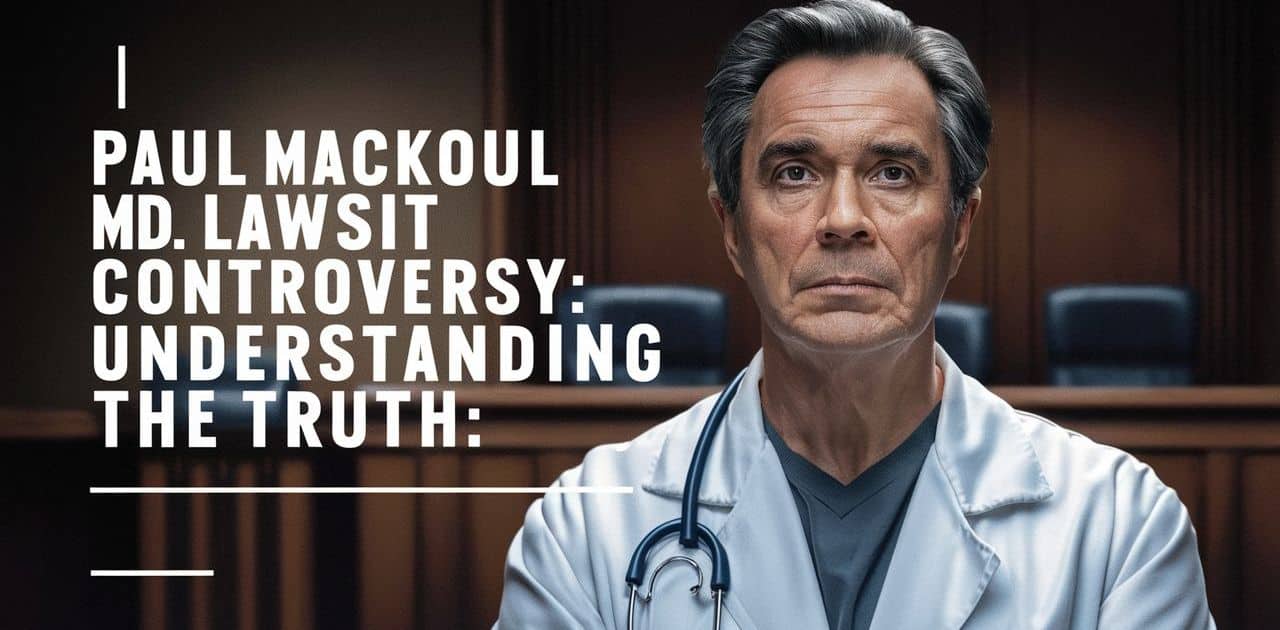


![Jynxzi Age, Net Worth, Career[2024]](https://filterabout.com/wp-content/uploads/2024/05/Who-Is-Shanin-Blake-Age-Wiki-Parents-Dating-Net-Worth-300x148.jpg)
![Jynxzi Age, Net Worth, Career[2024]](https://filterabout.com/wp-content/uploads/2024/05/Jynxzi-Age-Net-Worth-Career2024-300x148.jpg)


![Kutty Surumi Net Worth, Bio, Age[2024]](https://filterabout.com/wp-content/uploads/2024/05/Kutty-Surumi-Net-Worth-Bio-Age2024-300x148.jpg)



![Jynxzi Age, Net Worth, Career[2024]](https://filterabout.com/wp-content/uploads/2024/05/Who-Is-Shanin-Blake-Age-Wiki-Parents-Dating-Net-Worth-150x150.jpg)